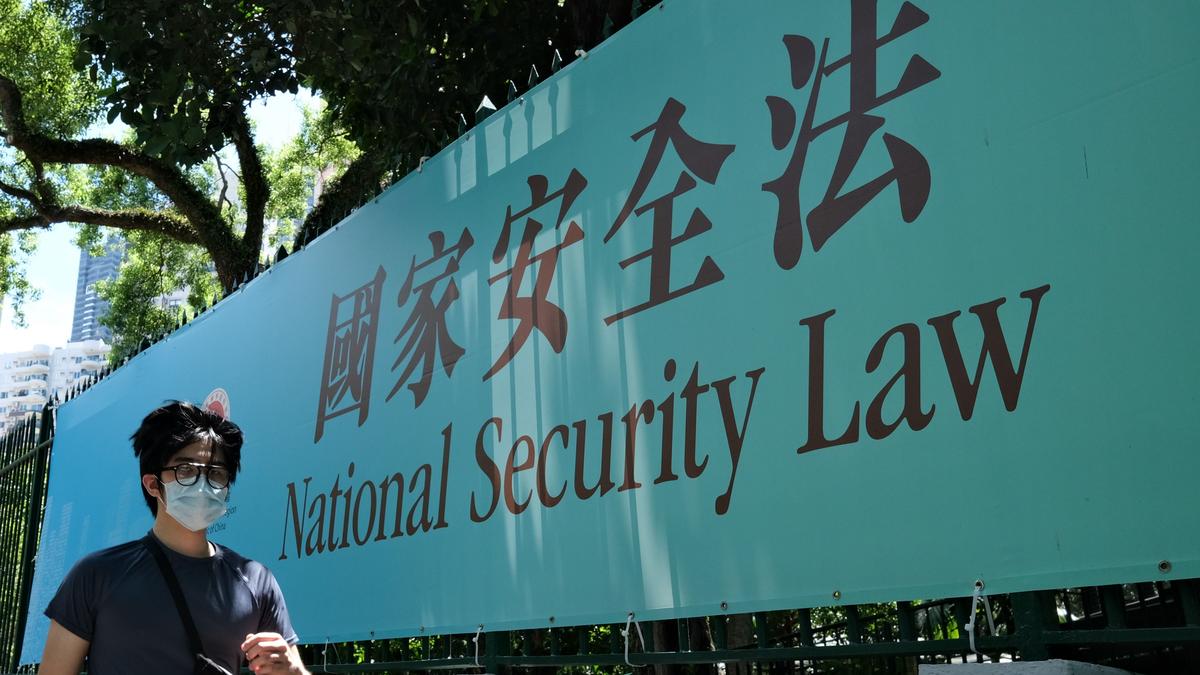Hong Kong’s national security law, implemented in 2020, has been a source of contention since its inception, with critics arguing that it stifles dissent and undermines the city’s autonomy. The recent arrests of two individuals on charges of sedition under this law, following the conviction of Stand News and its editors, further raise concerns about the law’s impact on free speech and freedom of expression. This article explores the implications of the latest arrests and the broader context of the national security law in Hong Kong.
Sedition Charges and the National Security Law
The arrest of a 41-year-old man and a 28-year-old woman on charges of sedition highlights the expansive scope of Hong Kong’s national security law and its application in suppressing dissent. The alleged acts of “provoking hatred” towards the governments in Beijing and Hong Kong, as well as the publication of a note expressing despair over Hong Kong’s future, exemplify the potential for broad interpretation and application of the law.
The Use of Sedition
The concept of sedition itself, rooted in British colonial rule, has long been criticized as a tool for suppressing political opposition. The law was originally designed to target acts of rebellion against the British Crown, but has been adapted and reinterpreted by the Hong Kong government under Chinese rule. This has raised concerns about its use for silencing government critics and quashing legitimate forms of dissent.
Expansion of the Law
The implementation of Article 23, the new national security law, in March 2024 further expanded the scope of sedition, increasing the maximum jail term from two years to seven. This escalation of penalties underscores the Chinese government’s commitment to enforcing the national security law and deterring dissent.
Impact on Freedom of Speech and Expression
The recent arrests and the increasing use of the national security law have had a significant chilling effect on freedom of speech and expression in Hong Kong. Critics and activists feel constrained in expressing their views and opinions, fearing repercussions under the law.
Fear and Self-Censorship
The arrests and convictions under the national security law have created a climate of fear and self-censorship in Hong Kong. Individuals are wary of speaking out against the government or engaging in activities perceived as “seditious” due to the potential consequences.
Limited Space for Dissent
The shrinking space for dissent in Hong Kong has resulted in the closure of numerous independent media outlets, the departure of journalists and activists from the city, and a decrease in public engagement in political discourse. This erosion of fundamental freedoms has cast a long shadow over the city’s future.
International Concerns and Criticism
The crackdown on dissent in Hong Kong has attracted international condemnation, with nations like the United States and Britain expressing concern over the erosion of fundamental freedoms.
Violations of Human Rights
The implementation of the national security law has been widely criticized as a violation of human rights, including the right to free speech, freedom of assembly, and freedom of association.
Diminished Autonomy
The increased application of the national security law has raised concerns about the diminished autonomy of Hong Kong. Critics argue that the law serves as a tool for the Chinese government to suppress any form of dissent or opposition that challenges its authority.
Takeaways
- The arrest of two individuals for sedition under Hong Kong’s national security law highlights the law’s broad interpretation and its potential to stifle dissent.
- The use of sedition as a charge has a long history of suppressing political opposition, and its expansion under the national security law has exacerbated concerns about its impact on freedom of speech and expression.
- The national security law has created a climate of fear and self-censorship, effectively silencing dissent and undermining fundamental freedoms.
- The international community has expressed concerns over the erosion of human rights and the diminished autonomy of Hong Kong, calling for the repeal or revision of the national security law.




